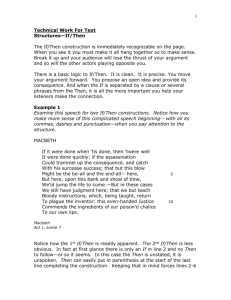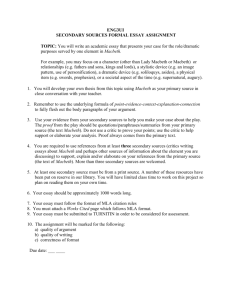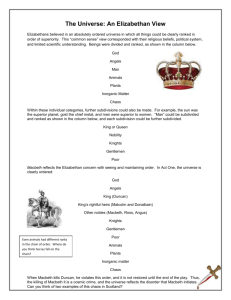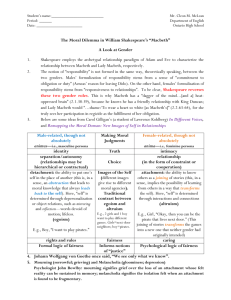File
advertisement
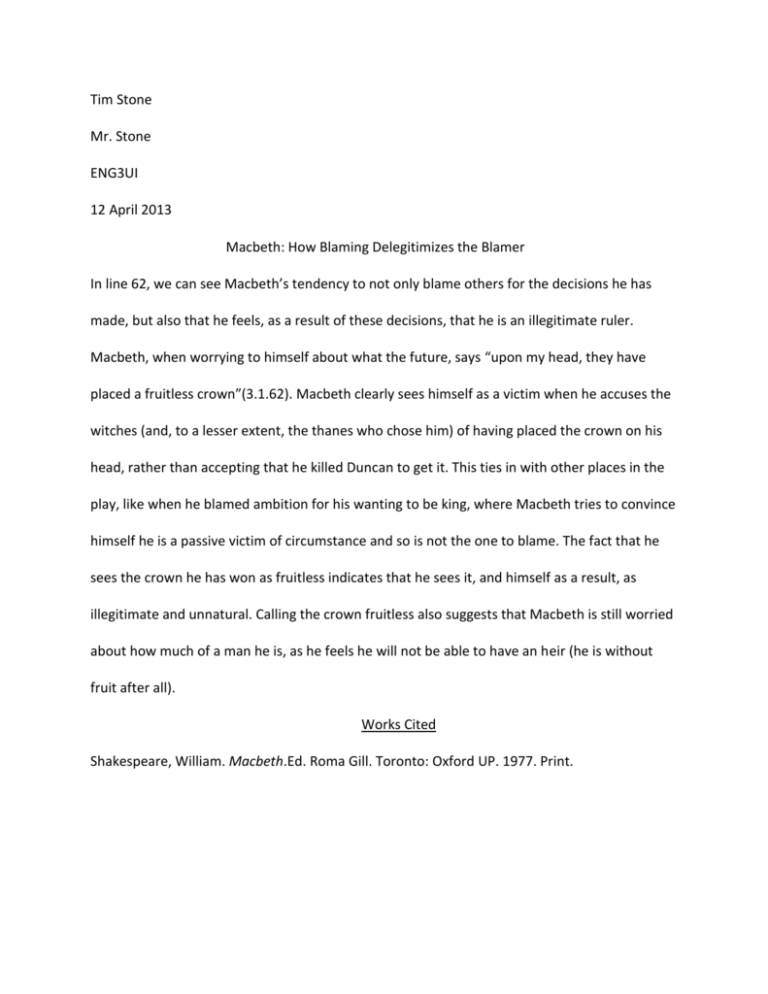
Tim Stone Mr. Stone ENG3UI 12 April 2013 Macbeth: How Blaming Delegitimizes the Blamer In line 62, we can see Macbeth’s tendency to not only blame others for the decisions he has made, but also that he feels, as a result of these decisions, that he is an illegitimate ruler. Macbeth, when worrying to himself about what the future, says “upon my head, they have placed a fruitless crown”(3.1.62). Macbeth clearly sees himself as a victim when he accuses the witches (and, to a lesser extent, the thanes who chose him) of having placed the crown on his head, rather than accepting that he killed Duncan to get it. This ties in with other places in the play, like when he blamed ambition for his wanting to be king, where Macbeth tries to convince himself he is a passive victim of circumstance and so is not the one to blame. The fact that he sees the crown he has won as fruitless indicates that he sees it, and himself as a result, as illegitimate and unnatural. Calling the crown fruitless also suggests that Macbeth is still worried about how much of a man he is, as he feels he will not be able to have an heir (he is without fruit after all). Works Cited Shakespeare, William. Macbeth.Ed. Roma Gill. Toronto: Oxford UP. 1977. Print.






